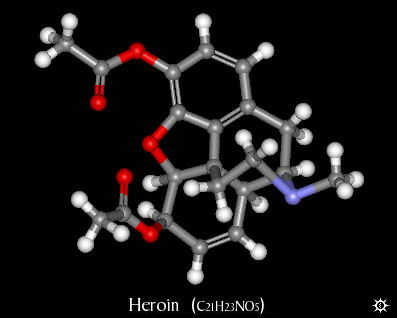Might

One of the framing jobs I had to do at work today was a pair of posters warning of the destructive qualities of various drugs. (Note to educators: these do not work.) One of the posters was in English and the other in French, and I noted that the French word for "heroin" is "héroïne".
Well, isn't that interesting.
The obvious question is, "Is 'heroin' actually related to the English word 'heroine'?" The answer to this question is, "Yeah, kinda, if you filter it through a couple of languages first."
Heroin, by all accounts, got its name from the German word "heroisch", "heroic", because it made people feel pretty damned terrific. The "-in" was, according to the eternally useful Wikipedia, "a common ending for drugs at the time": in fact, just eleven days before heroin was first created, the very same scientist, Felix Hoffman, invented aspirin (which at the time was a trade name--as, in fact, was heroin).
And the French word for "hero" is "héros" (the "-s" is silent), the feminine form is "héroïne" (with the dieresis indicating two separately pronounced vowels), and as I noted, the French word for "heroin" is, amazingly (to me), also "héroïne".
I think we can attribute this coincidence of words in French to two things. First, "-ine" is a fairly common feminine suffix in the language, used particularly for names (Paul/Pauline, Just/Justine) but also for nouns (figure/figurine), so "hero/heroine" makes perfect sense in English and in French. And second, if you're adopting German "heroin" into French, you can't just take it as it is and keep anything like the original pronunciation, because the terminal "-n" would be silent; to have it pronounced, you have to tack that "-e" onto the end--like the difference in French between "fin" (pronounced, more or less, as a nasalized "fah", like the first two thirds of "fat") and "fine" (pronounced, again more or less, like "Finn").
So, unless I'm much mistaken, the two French words, although they have the same essential root, came from two different places. In English, they aren't spelled alike, though they are pronounced the same, leading to many headaches for teaching assistants marking English papers.

0 Comments:
Post a Comment
<< Home